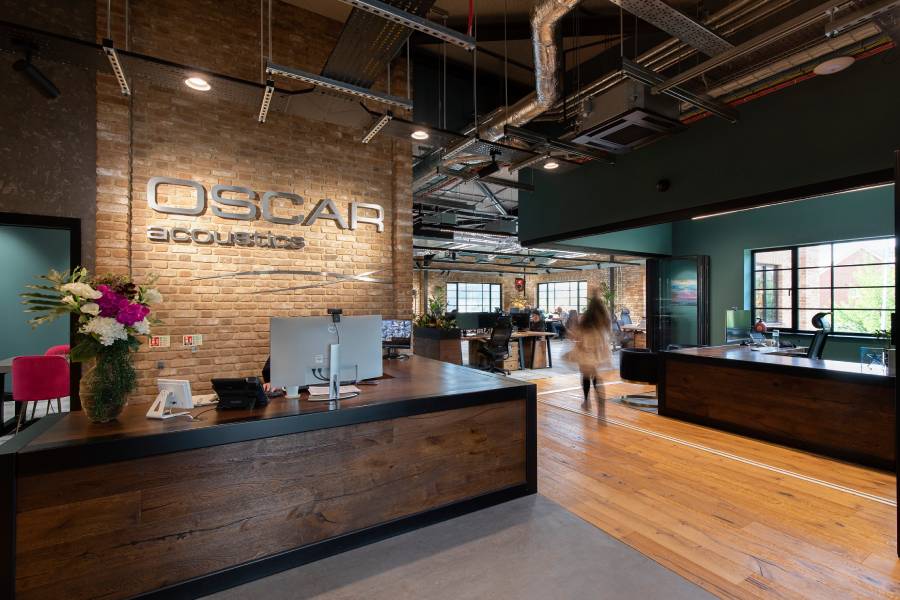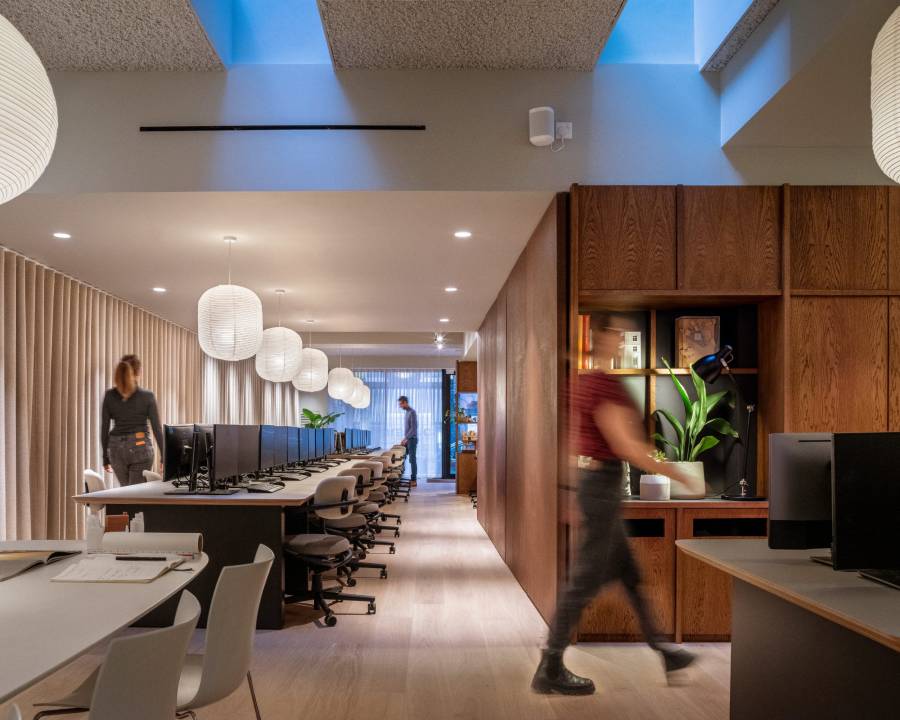
Photo Credit: Oscar Acoustics HQ_Photo by ©Antonia Stuart
A new study from Oscar Acoustics, Great Britain’s specialists in architectural acoustic finishes, highlights a growing workplace challenge: Excessive office noise is undermining productivity, employee well-being, and the ‘Great Return to the Office.’
Noise has become a major deterrent for employees returning to in-office work. The push to end hybrid working is gaining momentum, with corporate giants like Amazon, JPMorgan Chase, and Barclays[1] leading the charge and setting the tone for what some call "the great return." Yet, despite efforts by employers to improve office environments, more than half (56%) of UK office workers still describe their workplaces as noisy, and fewer than one in three believe their surroundings fully support their productivity.
The findings, based on a survey of 2,000 UK business professionals, reveal the impact of poor acoustic design on employee satisfaction and productivity:
- 36% of employees work from home to escape office noise.
- A third have shifted their hours to find quiet periods.
- 26% have relocated their desks, while 1 in 5 report conflict caused by noise-related tensions with coworkers.
- 47% struggle to concentrate, 36% feel irritated, 30% report stress, and 7%—1 in 14—say they’ve suffered hearing damage from prolonged exposure.
The data also reflects a generational divide: Two in three employees aged 25-34 say they would quit if forced to return to full-time office work, while just 1 in 10 Gen Z workers actively prefer office hours.

Photo Credit: dMFK_76 Charlotte St_Photo by Killian O'Sullivan
A productivity problem ignored
Despite the global focus on workplace well-being, the percentage of employees who describe their office as noisy has remained stubbornly high—from 59% in 2019 (Oscar Acoustics, Noisy Workspace, 2019) to 56% in 2025. Noise-related productivity issues are also worsening: In 2023, 81% of employees reported that office noise affected their performance, up sharply from 41% in 2022.
To cope, employees are increasingly turning to noise-blocking methods, including headphones, with usage nearly doubling from 23% in 2022 to 41% in 2025. While effective in the short term, this reduces collaboration and team cohesion, stifling opportunities for spontaneous learning and innovation, especially for junior colleagues who are in a stage of their careers requiring mentorship and on-the-job coaching.
Rob Smith, Director, tp bennett, outlined: “There needs to be more logic in how offices are designed, ensuring a seamless transition from quieter zones to vibrant, high-energy areas. When people do find themselves in those busier environments, there should be easily accessible refuge spaces. This is where we can truly leverage acoustics and lighting to create retreats that offer relief when the noise becomes overwhelming.”
It’s all in the design
Acoustic issues continue to be overlooked in office design despite the growing evidence of their impact. Only 29% of workers feel their office acoustics meet their needs, with the same number revealing that implementing acoustic solutions would improve their productivity. This aligns with reports from architects highlighting a lack of focus on sound management in project briefs.
Ben Hancock, Managing Director of Oscar Acoustics, commented: “Productivity in the UK is already under scrutiny, with the Confederation of British Industry (CBI) reporting declines in Q1 2025[2] and EY revising GDP growth forecasts down to 1%[3]. Employers, architects, and developers cannot afford to treat acoustics as an afterthought. Investing in sound management isn’t just a matter of employee well-being—it's a strategic priority for business success.”
Derek Clements-Croome, Emeritus Professor at the University of Reading, said "The landscape is changing. By incorporating features like restoration pods, for example, we’re acknowledging that taking breaks is not only acceptable but beneficial for the brain. It doesn’t mean you’re unproductive; quite the opposite, as creative thoughts can occur at any moment in any place. You’re often more productive when you give your brain the respect it deserves.”
Oscar Acoustics calls on companies to prioritise workplace acoustics as part of their return-to-work strategy, empowering employees to thrive in environments designed for both productivity and collaboration.
To find out more about Oscar Acoustics’ study, download their 2025 Whitepaper ‘Shaping Spaces for The Great Return to the Office,’ here.










